81. Don't Drink Bad Beer, and Don't Be an Asshole
The two are not mutually exclusive! Plus, VERY EXCITING beer tarot news!
The Subtle, Simple Art of Returning Your Beer
Last Thursday night, my husband and I were at one of our regular go-to beer bars, and he ordered a pilsner from a local brewery that we’ve had before—and that is great—and upon the first sip, he knew this pour was wildly different than what the beer was supposed to be. I got straight-up marinara sauce on the nose, and dirty, moldy sink on the palate. But it took him a few minutes to decide it was worth saying something to the bartender and getting something else. In theory, that seemed absurd to me—the beer was clearly undrinkable—but in practice, it’s something I couldn’t relate to more. I hem and haw around the little dance that is returning a bad beer without feeling like a douchebag.
And so, I started thinking about this balance. You should never drink a bad beer. But you should also never be an asshole to a bartender. That doesn’t actually seem that hard, and yet, we’ve all seen some people struggle to remain in the very wide lane between “not drinking bad beer” and “not being an asshole.” I’d bet the kind of people who are just going to be rude to bartenders and servers no matter what are not reading a newsletter this, so I’m speaking more to the people who feel like I often do: “I know this beer is off, I want something else, but I really don’t want to make it a Thing, or come off the wrong way to the bartender, or seem like I just want a free beer.”
First of all, there’s the identification of the problem that you do on your own. Is there something legitimately off with that beer, or do you just not like it? There are so many great resources on off-flavors and which come from dirty draft lines, so I won’t dwell too much on very well-trodden ground. This Serious Eats article breaks down some of the most common off-flavors in beer in a very consumer-friendly way, including off-flavors that happen in the brewhouse, too, and I think something like this can be an approachable entry point to off-flavors if you’re not trying to operate on Cicerone level in this arena. But just a note that it also includes call-to-action tips like, if you pick up diacetyl, “ask how often they clean their draft lines.” Lol, don’t do this. We’re circling back to this in a hot sec.
Heading into more industry-speak territory is this VinePair look at dirty lines, which is great and super informative, walking the line between approachable explanations and things that are helpful to know even if you’re already working behind the bar. However, again, note that it ends with advice to ask your bartender, “Who did your line cleaning? Did they just do it? Did they do it properly?” Idk, if I were a bartender and a customer sat down and asked me those questions, I’d have to excuse myself to take some steadying breaths.
Here’s another good, basic, straightforward guide to off-flavors, on SevenFiftyDaily. I think the way we as patrons should be using these sorts of guides is for our own beer education, whether we just want to be better-informed, more enthusiastic beer lovers, or are on a path to Cicerone certification and/or industry careers. Absolutely train your palate on recognizing off-flavors. It’s just good, basic knowledge, and it’s downright crucially essential if you have ambitions of working in beer. But again, this analysis is a personal piece of the possible beer-return process, for reasons we’re driving toward.
One of my favorite resources on this topic is a recent episode of the All About Beer podcast, on which hosts Em Sauter and Don Tse welcome Neil Witte. Witte is precisely who you want to talk to about draft lines and beer quality: he’s worked in draft quality for 20 years, co-authored the Draught Beer Quality Manual, and is a member of the Brewers Association Draught Quality Subcommittee. The episode is a must-listen, unpacking the ins and outs of line-cleaning (including some very interesting factors like who is legally responsible for it in different states) and how it affects beer. And it does indeed come with the conclusion that you shouldn’t drink bad beer, but remember that that in no way means you can storm up to a bartender enraged you have been served such a thing.
So, let’s finally get to the part where we actively do not drink bad beer. There are two options here: One is to know how to return a bad draft beer. The other is to know when to not order a draft beer in the first place. You run a much higher risk of getting a less-than-stellar-quality beer on tap at a bar that’s not a dedicated beer bar, and certain kinds of venues just ramp that risk factor up further, like high-volume, not-craft-focused sports arenas.

I do think it’s worth noting that there’s a middle tier here, which can confuse things. With the ubiquity today of craft beer, there’s a kind of bar that definitely isn’t a craft beer bar, but is clearly, like, a bar that emphasizes quality and variety. You know, the bars that have a little of everything, aren’t beer bars, aren’t wine bars, aren’t cocktail bars, certainly aren’t dives but aren’t fancy, but have a whole ~vibe~ with decor and events and everything, and so looking at that solid beer menu, you think, surely a place like that has to be safe, right? Unfortunately, there’s a bar like this in my neighborhood that I love, but I’ve learned the hard way to not order beer on tap there. Everything about it reads to me like I should be able to, and so I’ve given them way too many chances, and gosh golly is it no good. But the can list is great, so…! I think with this category of bars, it’s worth giving draft a shot, but if it is bad, when you do your polite return to the bartender, just go ahead and switch to cans, maybe permanently at that spot.
Okay, so when you are walking back up to the bartender because your beer’s bad, the biggest thing to remember other than rule number one—BE NICE—is to not try to identify the issue. That’s the fun little learning exercise we do by ourselves at our table or bar stool, remember? That’s just for us, our little secret. We do not need to share our findings with the bartender. As the tweet above points out, there’s nothing to be done in that moment even if it is a dirty-line issue. Also, you could very well be wrong! As another response I got on Twitter noted, people are always declaring beer “skunked,” probably with little familiarity with the actual causes behind a beer being skunked. Look, it’s 110% okay for a beer drinker to not know these terms and causes! But that’s all the more reason why, even if you’re an expert, if you’re just a patron and not the brewer or distributor of that beer you’re drinking, no one needs to hear your guess. It doesn’t matter, it’s unsolicited, and it might be wrong.
The only relevant information for a bartender if you do not want to drink the beer you ordered is that you do not like it and want something else. I do think it’s okay to note something vague like, “it tastes off.” That could at least be a signal to staff that that beer is worth investigating later. Or not—again, if you’re not the brewer or distributor, it’s really none of your damned beeswax. But again, it’s a signal whether they want to note that or not, and sometimes, all depending on the vibe and interaction you’ve been having with the bartender, that feels better in the moment than saying you don’t like it. This could, depending on the establishment and the bartender, also lead to a conversation with you. The bartender might ask you what specifically seems off, and then it’s obviously okay to share your observations. But still here remember that you’re speaking as a patron who noticed some things and has some varying level of knowledge here.

^^^ See? This is good! Polite! Vague “this is off” statement! Open to answering questions if they come! Personally, as I mentioned in reference to one of my local bars, I wouldn’t swear off a bar for a draft blunder, but I would swear off draft there and I think that’s a safe recommendation in general.
I would keep in mind that you are going to get different responses from different bartenders at different venues. It’s all the more reason why keeping your approach methodical—polite, “it’s off,” don’t make unsolicited diagnoses but do answer questions—helps, both with getting you a better beer and with giving you some confidence. Like, if I know this is how I’m going to handle it every time, I’m not going to break into a cold sweat of social-awkwardness dread every time I get an off beer. I will know I do not have to and am not going to drink that beer, but I will also know I don’t have to have an uncomfortable stand-off. If the bartender does give you some sort of attitude or has a strange reaction, you can rest assured that’s not on you if you know you were nice.

This tweet brings up another great point here, which is that breweries should know when their beer isn’t being served as it’s intended. That can hurt breweries. I think if you’re in a situation where it feels approachable and natural enough to do so, you can let the brewery know if you’ve just been served one of their beers and it was off. Take the DM or email or text route so as not to put the venue and possibly the bartender on blast—we can never know the behind-the-scenes situation.
Pam Catoe brings up the last point I want to address here, which is that sometimes, you just don’t like the beer. It doesn’t seem off, it’s just not for you.

This is another place I’ve struggled, because I’ve felt like, “well, it’s no one’s fault but mine, so I’ve just gotta muscle through this.” But I’m starting to realize only the first half of that statement is true: it’s no one’s fault. Not yours, either! Hey, you wanted to try a dark saison. And now you know it’s not your cup of beer. That’s not the fault of the brewery, the bar, the bartender, or you. Life is too short and you can only drink so many beers, so don’t waste it on a beer you don’t like. But, you cannot, you simply cannot, act like it is anyone else’s fault. There is nothing wrong with the beer, it’s just your own palate and preferences, so order another and eat the cost or, as Pam mentioned, see if someone you’re with would like to swap or take it, which is really best-case scenario.
Never drink bad beer again, and also, never ever be a jabroni. An appropriate finale to this act? TIP WELL!
Beer Tarot!
Before I get into this week’s beer tarot, I have VERY EXCITING news to share in this department. Hugging the Bar’s “beer tarot” just got significantly more beer-linked. Stellar brewery—heavy metal brewery—TRVE Brewing out in Denver just released their own tarot deck. Their Instagram post announcing this truly stopped me dead in my scroll. I’d never seen a brewery delve so seriously into tarot, and readers, I felt seen—I think all of us who love beer and are even mildly interested in this sort of thing can feel seen now.
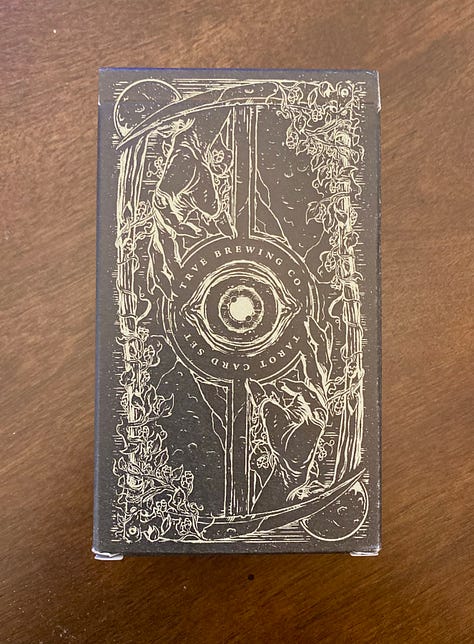
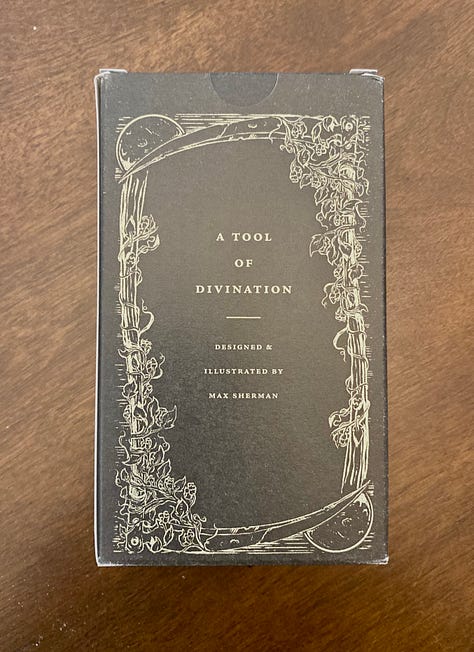
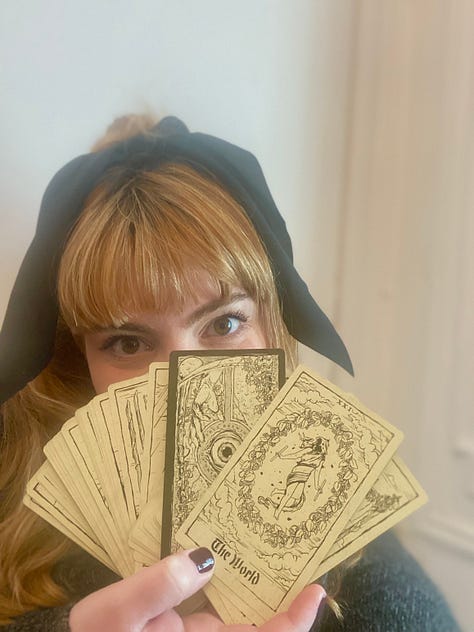
The deck was painstakingly and brilliantly designed by artist Max Sherman—there’s a bit of background info in this article. I am so very grateful to TRVE for sending me a deck, and I am that much more jazzed about these weekly tarot readings, which will now be illustrated by Max Sherman’s TRVE Brewing tarot cards going forward. HAILS!
This week, I pulled The Star.
The Star has a message of hope, renewal, spirituality, and purpose. In the deck, it follows The Tower, which is a card speaking to some kind of destructive forces, and so The Star signifies the dust from that destruction settling and you being able to breathe, process, rebuild, and flourish again. This card has big phoenix energy, basically. Get ready to rise from some ashes.
On a small scale, large scale, or anywhere in between, some part of you, or all of you, has rocked to your core by recent events. Your foundation has been shaken, the rug has been pulled out from under you. While this very well may have been painful and upsetting, and quite possibly is something you will be dealing with for some time to come—because The Star is about healthy rebuilding in your own time, not rushing to distract yourself with a new endeavor—you’re starting now to see what you’ve learned or what new perspective you’ve taken from this period. Maybe you’ve learned how strong you are, maybe you’ve seen a person you were hesitant to trust really come through, maybe you’ve realized how awful a workplace you’d previously held in high regard really is. It’s like that destruction brought down all the facades around a person or set of beliefs or institution, and now you can see in full light what it’s all about. Take the time you need to process this however you need to, and then use it to illuminate a new, better path forward. A lot of tarot cards deal with these sort of reset vibes, but I especially like The Star because it is both the calm after the storm and then the new, sunny day that comes next, and because uniquely, it signals that there is a sort of peaceful, positive energy fueling your fresh start. The universe is on your side. This is a particularly good time to start toward new goals.
I’m going to go all in and choose a TRVE beer for this tarot, in celebration of this new beer-tarot era. They’ve got a mixed culture sour ale with dried makrut lime leaf, dried coconut, and salt (holy shit, right?) called Great Days, and The Star is telling you you have great days ahead. Let The Star and Great Days light up the way ahead.
This Week’s Boozy Media Rec
I had never heard of Roxana Doran before reading Kirstin Fawcett’s “The Prohibition-Era Effort To Make Mocktails Fun” for Atlas Obscura. While I am positive based on Doran’s affiliations and hobbies that I would not wanted to hang with her, this story is such an interesting look at her efforts to make non-alcoholic cocktails appealing to people during the Prohibition. It’s a striking difference, how much less open to this idea people were then, but I think it’s safe to say that comes down to options. Today, we have the freedom to choose whether we imbibe or not, so we love all these new NA options to pick from every day and decide what’s best for our own selves. In 1930, the year Doran wrote a book of collected mocktail recipes, it probably read something more like, “Miss booze? Have you even tried grapefruit juice? It’s the bee’s knees!” Which is now making me think of the Wall Street Journal’s recent, “Are you poor? Have you tried starving?” advice…anyway! This is a fascinating read!
Ex-BEER-ience of the Week
As I am moving and that is a full-time job on top of my…actual work, I sadly haven’t had a ton of time for beery outings. I did swing by The Gate on Friday evening and enjoy The Gates of Wrath, a West Coast IPA from KCBC made in collaboration with The Gate for its 25th anniversary (which I believe was at the end of last year). I love West Coast IPAs, I love KCBC, I love The Gate! So, this was a win-win-win. A mighty “cheers!” to The Gate, 25 years is an accomplishment in this business, and I’m so glad I’ve gotten to live in the same neighborhood as this institution for the last five of those years. Here’s to many more!
Until next week (or the week after, depending on how the move goes/whether I have walked into the sea by then), here’s Darby giving Baroque art vibes.

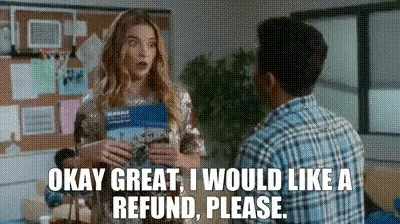


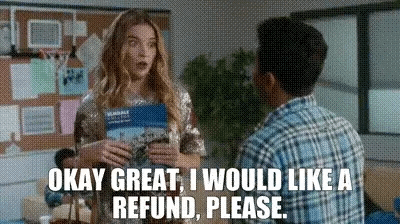

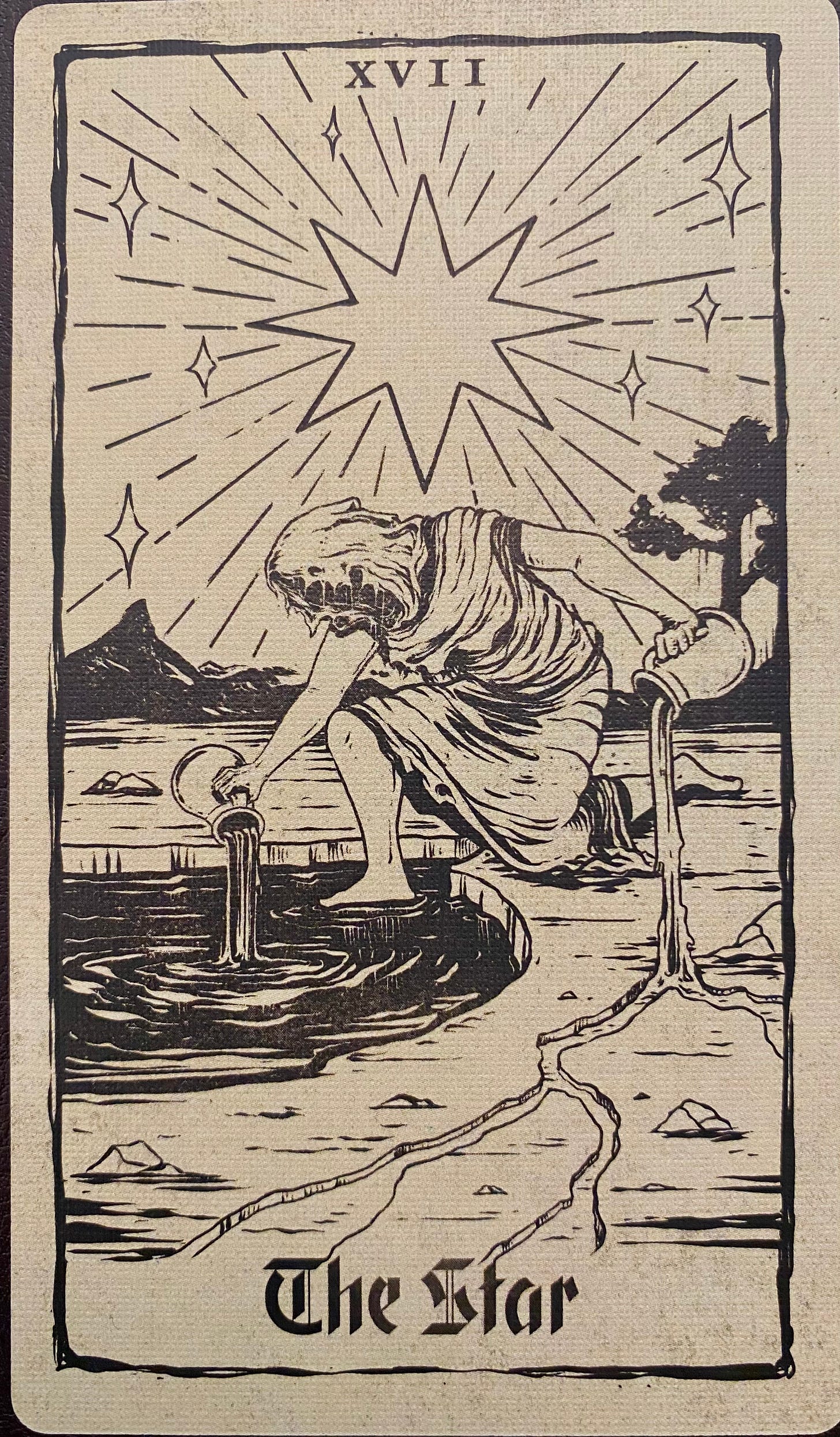
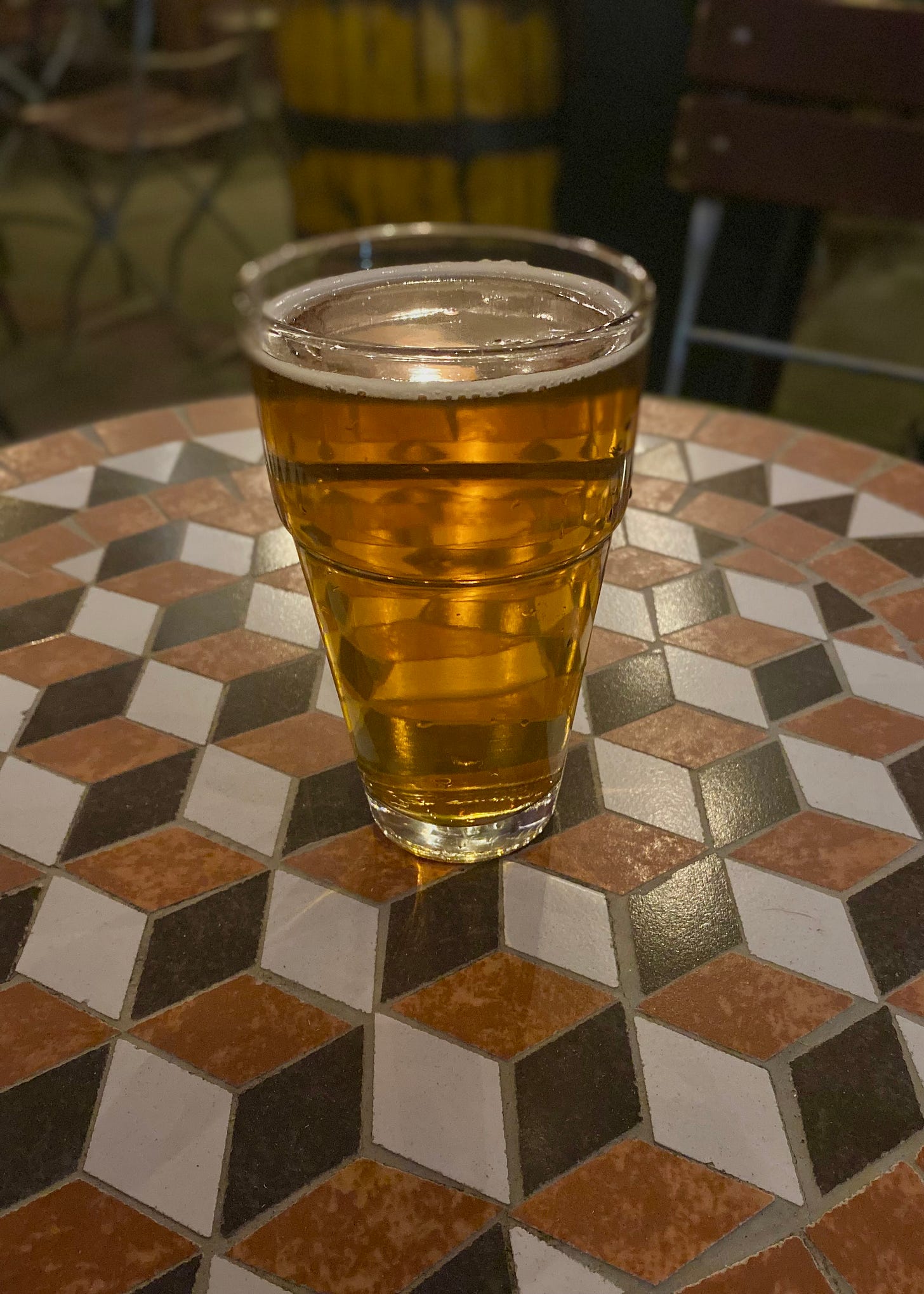
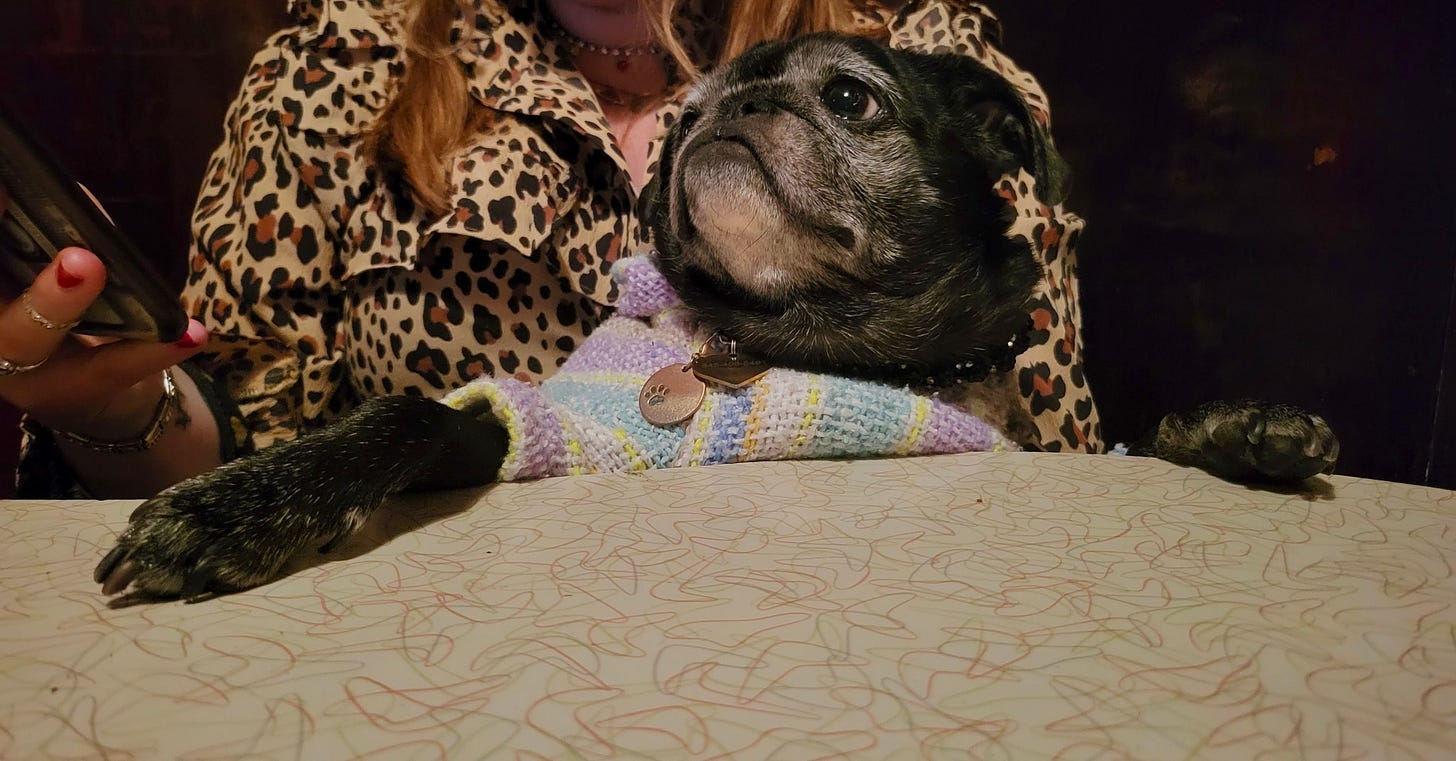
I can't tell you how happy I was to see your new beer tarot cards! So freaking pumped for you.